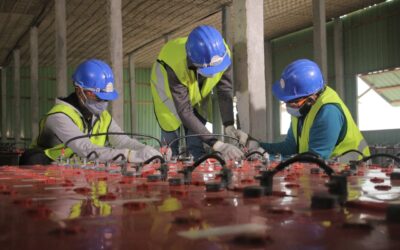by Runa Khan, Founder and Executive Director, Friendship
The blessing that gives Bangladesh its natural abundance also leaves it vulnerable to nature’s more destructive forces. Bangladesh is formed at the mouth of two of the largest rivers of the world: the Brahmaputra and the Ganges, known as Jamuna and Padma respectively in Bangladesh. Silt deposits from the Himalayas have created this fertile “Golden Bengal” over the ages and shaped the lives and cultures of this beautiful land.
Yet every monsoon season, these rivers swell with the melting snow of the Himalayas and then with the rains, and our people must cope with floods that are often catastrophic. Right now, floods are sweeping across the northern districts of Bangladesh taking away homes, livelihoods and lives. Twice a year, in the tropical cyclone season, devastating storms form over the Bay of Bengal. This year, the super-cyclone Amphan struck the coast on May 20 displacing 2.4 million people in Bangladesh. Disasters such as these happen annually and now with increasing frequency

Thus, when the world was hit with the Covid-19 pandemic, for Bangladesh it was another disaster in addition to the others that we face every year.
Bangladeshis are courageous and practical in their will for survival. When our people face disasters, they know that there is a very thin line between life and death, and that it is truly up to themselves to survive.
Perhaps this innate sense for survival is one of the reasons that the numbers of cases and deaths in Bangladesh are not as high as many predicted. People have taken measures to stay free of the virus. Despite the oppressive summer heat, people have been fairly disciplined in their wearing of masks. They do isolate themselves, keep social distance and wash hands regularly. Of course, there are people out on the streets—more than there should be. However, unlike in many other countries, it is not to socialise but out of sheer necessity—to ensure their families can have something to eat each day.

We are used to fighting for survival during disasters. But disasters in this region usual last a determinate period. The effects of the floods may linger for a month or two, but when the waters recede, there is always an opportunity to recover, rebuild and sow new seeds. After a cyclone, people can go back home and start working to bring normalcy back to their lives. This pandemic, however, is a crisis whose effects may last for years. I fear that we are coming to a point where our people will grow tired of giving 100% in battling to survive yet another crisis for such a long period. They will have exhausted all their mental, physical and economic resources and may give up trying to remain safe. Indifference may set in and then the numbers will certainly escalate.
In many countries we are already witnessing a second wave of infections, more difficult to respond to than the first. In Bangladesh our healthcare system is already stretched to the limit and we face many other difficulties because of the pandemic. How will we manage? The Bangladeshi Government, donors, non-government organisations and the private sector must work together with far more solidarity, common vision and verity. We must build hope for the future, and awareness that help is at hand, if we are to overcome this pandemic and survive.



